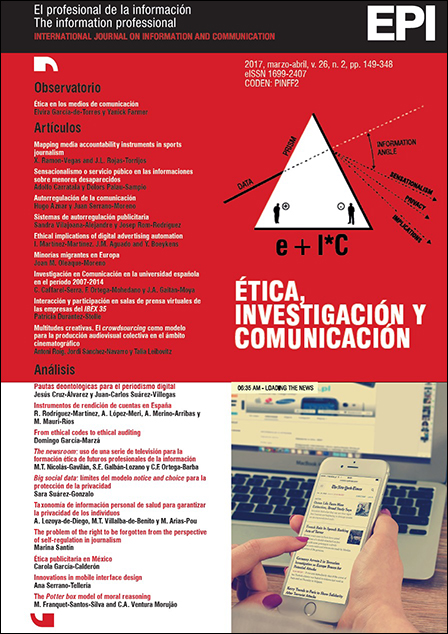Deontological guidelines for digital journalism
DOI:
https://doi.org/10.3145/epi.2017.mar.11Keywords:
Deontology, Digital journalism, Participation, Immediacy, Social networks, Journalists, Web 2.0, Communication, Internet, Participatory culture.Abstract
The tendency towards the instantaneity of information, due in part to the irruption of social networks into journalistic discourse, has had a direct impact on the quality and ethical considerations of professional practice. Closely related to this phenomenon is the participation of the audiences in configuring the news, posing new challenges to the profession that require measures and skills that cannot always be sought in classic codes of ethics. New principles are, therefore, needed to guide daily practice. In this article a decalogue of deontological guidelines applicable to professional work in digital journalism is proposed.
Downloads
Downloads
Published
How to Cite
Issue
Section
License
Dissemination conditions of the articles once they are published
Authors can freely disseminate their articles on websites, social networks and repositories
However, the following conditions must be respected:
- Only the editorial version should be made public. Please do not publish preprints, postprints or proofs.
- Along with this copy, a specific mention of the publication in which the text has appeared must be included, also adding a clickable link to the URL: http://www.profesionaldelainformacion.com
- Only the final editorial version should be made public. Please do not publish preprints, postprints or proofs.
- Along with that copy, a specific mention of the publication in which the text has appeared must be included, also adding a clickable link to the URL: http://revista.profesionaldelainformacion.com
Profesional de la información journal offers the articles in open access with a Creative Commons BY license.




